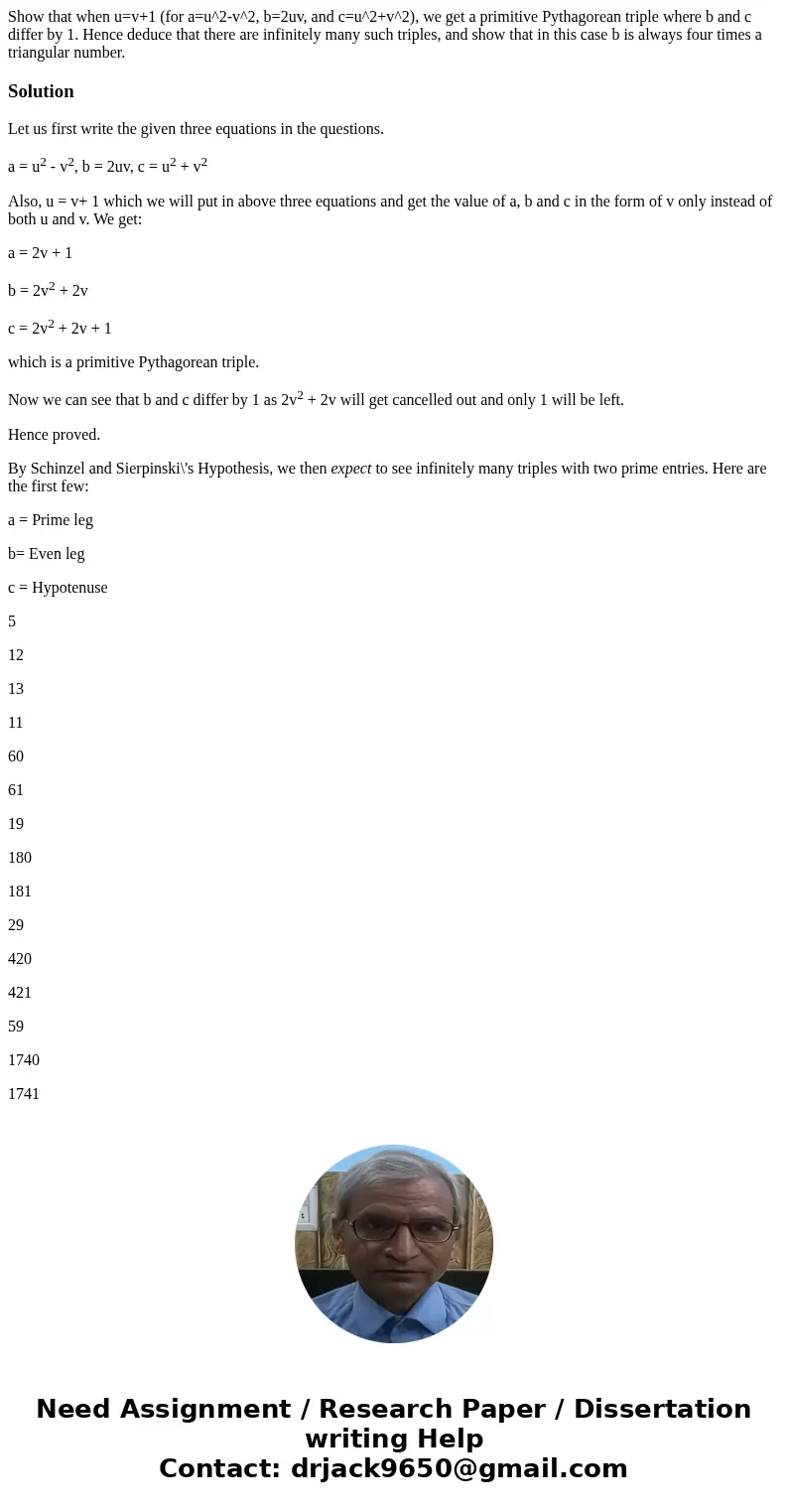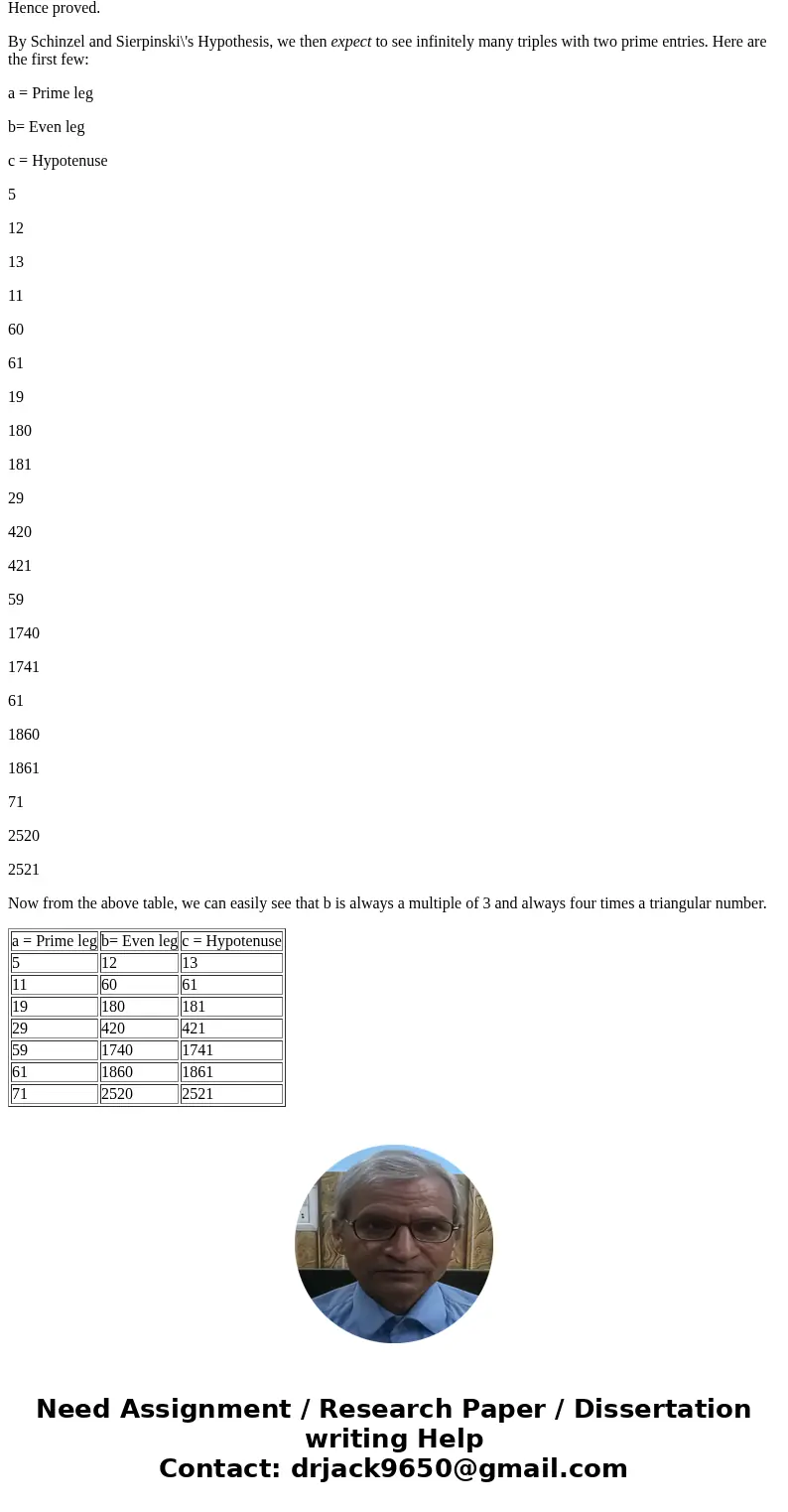Show that when uv1 for au2v2 b2uv and cu2v2 we get a primiti
Show that when u=v+1 (for a=u^2-v^2, b=2uv, and c=u^2+v^2), we get a primitive Pythagorean triple where b and c differ by 1. Hence deduce that there are infinitely many such triples, and show that in this case b is always four times a triangular number.
Solution
Let us first write the given three equations in the questions.
a = u2 - v2, b = 2uv, c = u2 + v2
Also, u = v+ 1 which we will put in above three equations and get the value of a, b and c in the form of v only instead of both u and v. We get:
a = 2v + 1
b = 2v2 + 2v
c = 2v2 + 2v + 1
which is a primitive Pythagorean triple.
Now we can see that b and c differ by 1 as 2v2 + 2v will get cancelled out and only 1 will be left.
Hence proved.
By Schinzel and Sierpinski\'s Hypothesis, we then expect to see infinitely many triples with two prime entries. Here are the first few:
a = Prime leg
b= Even leg
c = Hypotenuse
5
12
13
11
60
61
19
180
181
29
420
421
59
1740
1741
61
1860
1861
71
2520
2521
Now from the above table, we can easily see that b is always a multiple of 3 and always four times a triangular number.
| a = Prime leg | b= Even leg | c = Hypotenuse |
| 5 | 12 | 13 |
| 11 | 60 | 61 |
| 19 | 180 | 181 |
| 29 | 420 | 421 |
| 59 | 1740 | 1741 |
| 61 | 1860 | 1861 |
| 71 | 2520 | 2521 |


 Homework Sourse
Homework Sourse